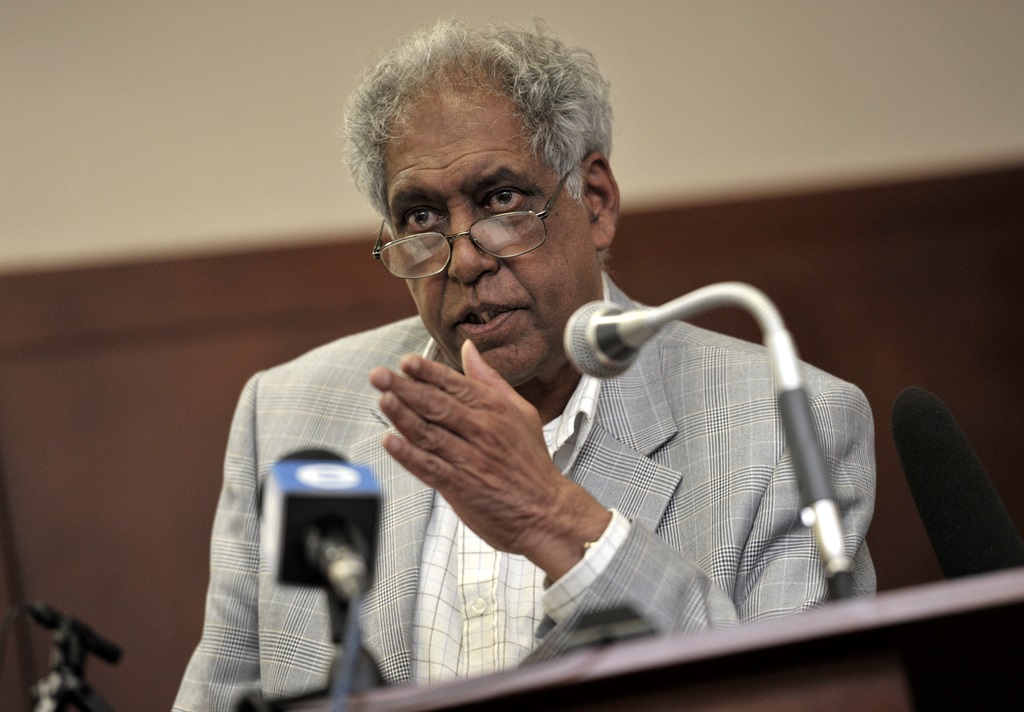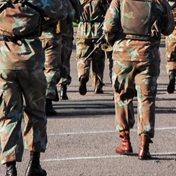
Two significant testimonies were given at the North Gauteng High Court in Pretoria today as day two of the second sitting into the reopening of the inquest into the death of apartheid activist Ahmed Timol kicked off today.
The first was by Professor Ken Boffard, a trauma specialist and qualified surgeon who testified on the findings of the post-mortem report that was compiled on Timol’s death.
The medical officer who performed the post-mortem at the time of Timol’s death in 1971 listed the following injuries which he had sustained:
• A fracture of the right elbow and a fracture of the right femur;
• A fracture to the base of the skull;
• A bad break under the brain and bleeding on the surface of the brain;
• A break of the nasal bones underneath the eyes;
• Fractures of the upper jaw;
• A tear in the right lung; and
• Significant neck and spinal injuries.
Due to the severity of Timol’s injuries, Boffard concluded that some of the injuries were inflicted on Timol before he had fallen from the 10th floor of John Vorster Square.
“There were a number of injuries that were reported. They appear to me to be old bruises. I think the injuries to the spine certainly were caused by the fall.
"There were pre-mortem injuries. But I would fear as an expert I can’t comment on that,” Boffard said.
He referred the court to the expertise of a forensic scientist to analyse the findings in the report.
Timol had landed in the garden area of John Vorster Square, where he was lifted on to a blanket and taken up to the ninth floor by two police officers.
Boffard testified that it was “common knowledge” within the medical fraternity to never move a patient when they are lying on the floor.
“Unless there were circumstances placing his life at further risk, for example being in the middle lane of a major highway, my opinion is that he should not have been moved until he was transported to hospital,” he said.
Boffard explained that the ambulances that operated in South Africa at that time were not fully medically trained, with paramedic training only being implemented in the early 1990s.
“So at the time of this incident taking place, ambulance services had very poorly equipped ambulances.
"Ambulance personnel had at best, an advanced first-aid certificate.
"There was really very limited training beyond that. My understanding of police officers is that they had first-aid but at a much more basic level,” he explained.
“The recommendation at the time was that a patient, if they had been badly injured should not be moved. They should be turned into what was called the ‘coma’ position which was turning them to lie on their side.”
This did not happen to Timol.
When asked by Howard Varney, who was representing the Timol family, if Timol’s condition could have worsened as a result of the way the police handled him after his fall, Boffard replied that any movement could have caused more severe injuries.
“At that time, the police didn’t even carry first-aid kits in their vehicles. As students and doctors we were told that even if a patient is in the middle lane of the newly opened M1 motorway, they must stay there,” he said.
Boffard also believed that there should not have been any reason why Timol was moved before allowing any ambulances to get to him.
Following Boffard’s testimony was the former minister in the presidency Dr Essop Pahad, who had struck up a close friendship with Timol when they were both in London.
As both members of the South African Communist Party, Pahad had been sent to exile in London. One day, he there was a knock on his door and when he opened it, Timol was standing outside.
“I asked him: Well what do you want?”
From then Timol struck up a friendship with the Pahad brothers, Essop and Aziz. He managed to secure himself a teaching job and was able to contribute to the living expenses.
“In spite of him having to give money to his parents, he would help me out in terms of when I had lack of funds.
"Whether it was to slip into a cinema or buy something to eat. When I left for London, he bought me my first overcoat,” Pahad told the court as he explained what Timol did for him when he was banned.
There are two reasons why Pahad believes Timol would not have committed suicide.
“Timol himself was a Muslim, and his parents were very pious religious people, and a Muslim, in terms of Islam, should not and could not commit suicide, and if you do you would not be able to be buried in a Muslim gravesite.
“The other reason is also while he was in exile, he met Ruth Longoni. They fell madly in love and at one point even thought of getting married, until Timol left her to come back.
"She had to stay behind in England. For me, Ahmed was always going to come back to Ruth, and for Ruth was always going to come back to her.”
Pahad’s testimony echoed that of Mohommad Timol, who testified on the fourth day of the first sitting into the inquest on June 29, when he said that his brother, Ahmed, would not have killed himself.
“Ahmed died a week before his 30th birthday. He had a whole life in front of him,” Timol told the court that day.
The proceedings resume tomorrow at 10.30am.




 Publications
Publications
 Partners
Partners








